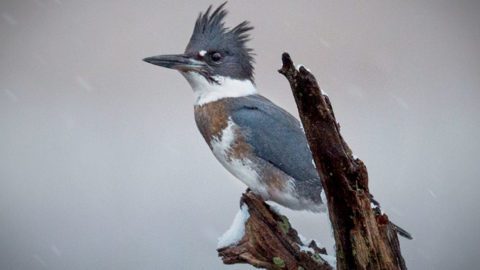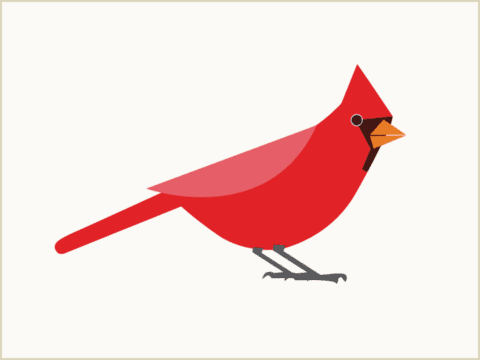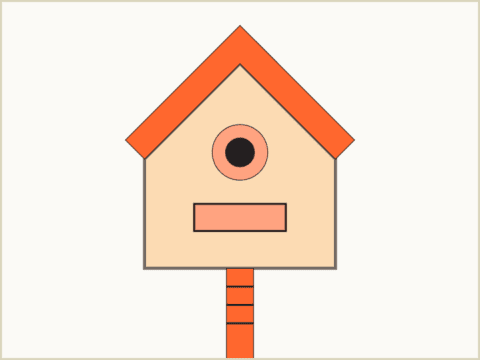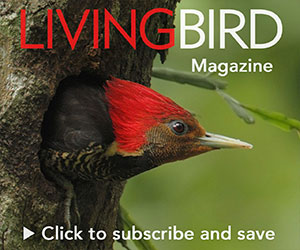Perspective: How Birds Helped Me Find Calm in 2020
A political scientist found that watching birds during lockdown fed her soul and opened up a world of connections—with the natural world and with other people.
By Christina Greer
January 4, 2021
From the Winter 2021 issue of Living Bird magazine. Subscribe now.
I celebrated New Year’s Eve last year in Kampala, Uganda. The first few days of 2020 were spent soaking up the sun and enjoying what the new year had in store for me, for my family and friends, and for my country. Even though I was on vacation, I read that a mysterious virus was making people sick in China.
When I returned to the U.S.A. and began teaching my courses for the semester and traveling to give political talks, I had no idea that in the second week of March I would essentially go on lockdown in my 800-square-foot apartment. When the coronavirus hit New York City and the number of deaths and infections skyrocketed, I stayed inside as much as possible, doing what so many Americans did the first few weeks of lockdown—I baked banana bread, took yoga classes online, almost completed a puzzle, and spent way too much time on Zoom. Then I decided to head to Dover, Delaware, to stay with my father for a few weeks. We could both use the company, and I needed fresh air and a less-urban environment to walk around without literally bumping into people as I walked to the store.
As I got adjusted to my new living arrangement with my dad (something I had not done since high school), I would awaken every morning around 5 a.m. to the sounds of the Dover bird community—cooing doves, bubbling wrens, geese settling in on the water. I felt a bit like Snow White waking from a deep slumber each morning to sounds louder than the alarm clock on my phone.
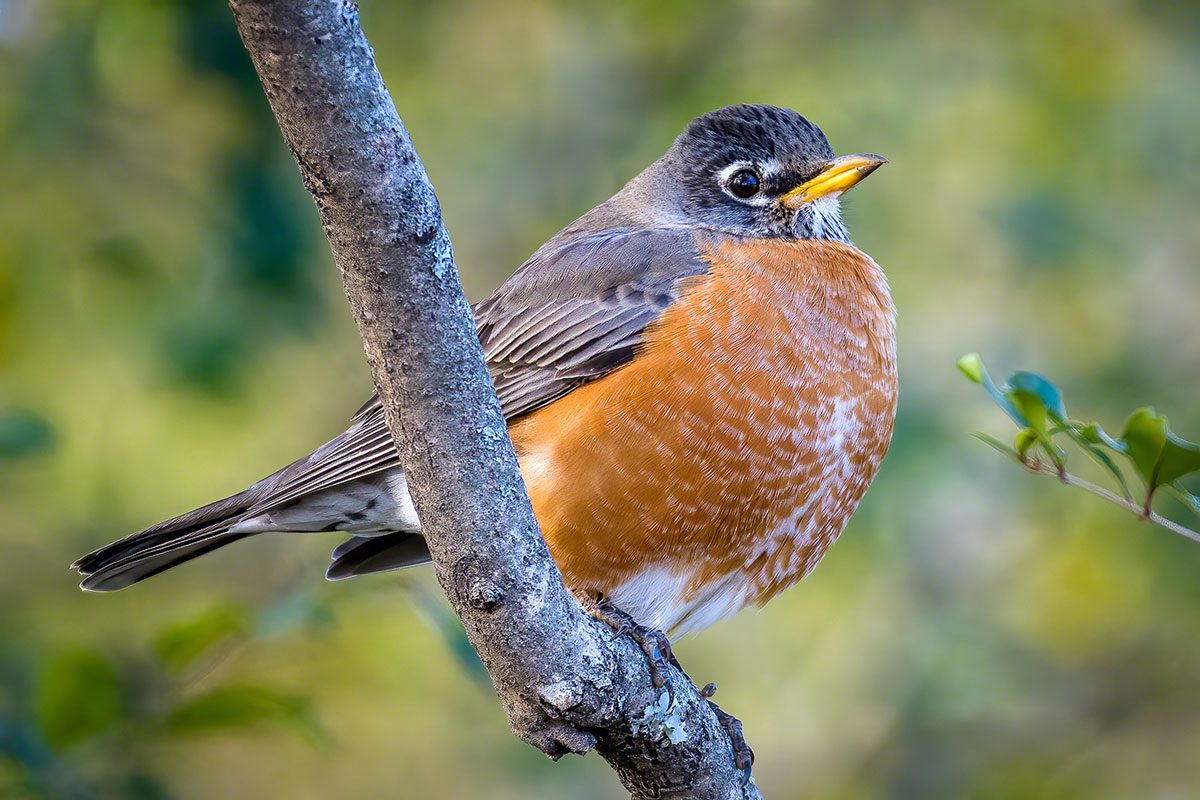
After long days of Zoom meetings, I would sit on my father’s terrace and settle in for what I began calling my “evening bird drama.” Although I often appear on cable news shows as a political analyst, I tend not to watch television very much. So, each afternoon I would sit down and listen to the bird songs, chirps, and calls. The sweet chirps helped my muscles ease just a bit, and for minutes each day I forgot we were living amid a pandemic. I was so excited by what sounded like a multitude of conversations in the bird community, I began working outside all day.
When people say stop and smell the flowers, I tell them to stop and listen to the birds.
To my surprise I saw cardinals, Blue Jays, orioles, and so many different warblers. One afternoon I witnessed a crow (or was it a raven?) steal an egg from a cardinal’s nest and a chase ensued. There were birds in the area that seemed like they were trying to warn their comrades to come back and guard the nest, but alas, they were too late. As I watched the scene unfold and the sounds that continued for minutes long after the deed was done, my heart raced. In that moment, I felt alive, connected, and forever changed.
Being able to observe nature during a lockdown fed my soul. Even though I did not venture far past my father’s terrace, I was still able to feel connected to a world that surrounded me. I felt at once connected and protected at the same time. It was as though in lockdown my senses heightened and I was able to hear and see the birds. When people say stop and smell the flowers, I tell them to stop and listen to the birds.
As my time in Dover came to a close and I made my way back to Brooklyn, I began to follow different birders on Twitter. Around this time, Christian Cooper, an African American birder, was accosted in New York City’s Central Park in a racial incident that made national news. A week later, young Black birders across the country organized #BlackBirdersWeek on social media, and I discovered that the diversity among birds—and birders—was beyond my imagination. I started following the tweets of Jason Ward, a young African American birder originally from the Bronx, and his community of followers who posted sightings of birds in NYC parks that were only blocks away from my apartment. Now when I walked through the Brooklyn Botanic Garden and Prospect Park, I looked up to enjoy the lone woodpecker or the hawk just hanging out watching traffic.
These past few months have been incredibly stressful for many—for people feeling emotional anxiety about contracting coronavirus, the status of their employment, Zoom-schooling their children, or dealing with loss in a myriad of situations. I must admit, discovering birding has been a salvation and a salve during this time. To wake each morning to hear the sounds of a wren or thrasher or even a pigeon reminds me that I am alive and a part of something larger, even if I will be in my apartment the entire day.
Birds have become a symbol and reminder of internal peace, and I am most grateful for this discovery during this uncertain time in our country and the world. I am also so grateful I discovered the birding community on Twitter. I think about my new friendship with bird photographer Jim Pottkotter, a retiree in Tennessee who posts the most beautiful bird pictures on Twitter each morning, as if to remind the world to start their day by appreciating nature’s wondrous bounty.
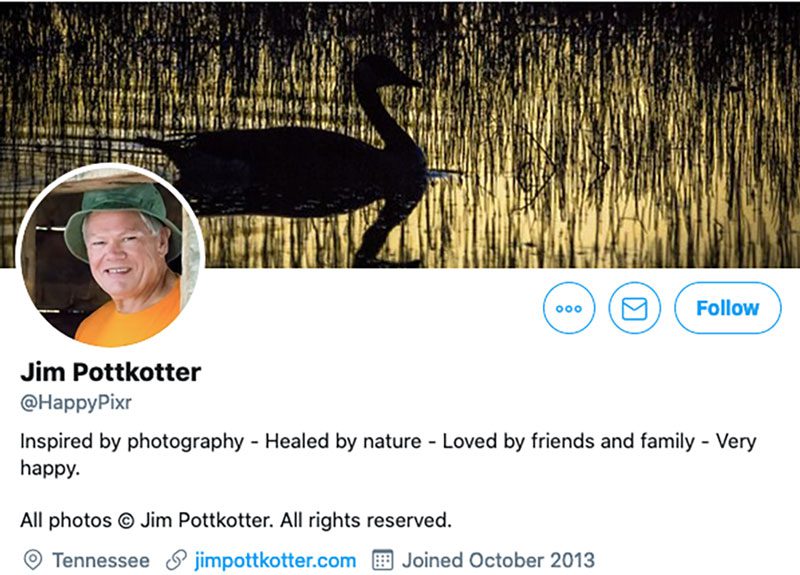
I am not sure how I came to follow Jim on social media, but as reciprocal Twitter followers I felt connected to a fellow human being hundreds of miles away as I quarantined in Brooklyn. When would I have crossed paths with Jim and his gentle spirit, had it not been for birding? Through our friendship, I discovered that he is not far from Murfreesboro, Tennessee, the birthplace of my grandfather and my great-grandparents. As we communicated over the summer, he shared pictures of his discoveries on the open road while checking in on me in the big city. I have no idea about Jim’s politics or what he did before retiring, but I do know that he and his family are keeping me in their thoughts as New York City battles this pandemic. I do know that Jim’s coffee-table book and calendar have brought me immense joy on gloomy days. Seeing the freedom in his photographs reminds me of simpler times, and hopefully of times to come post-pandemic. His birds are a symbol of hope, of simplicity, of patience, of focusing on what is truly alive and important in the world.
This past year has been quite difficult for so many Americans. For me as a Black American and a political scientist, it’s been busy, emotionally and intellectually draining, and sometimes frightening. Birding has been an addition to my life that helps me keep what is truly important in context and as a priority.
I am by no means an expert birder. I will likely never know the difference between any of the warblers or their calls and songs. But I just enrolled in a six-week virtual birding class with Jason Ward, so maybe I shouldn’t sell myself short just yet.
I do know birding has made me feel more connected to myself, the land, and my fellow citizens. As we wait to emerge from the grip of this pandemic, we must practice patience as a virtue. And there is no better practice in patience than waiting for a bird to emerge or listening for its call.
Dr. Christina Greer is an associate professor of political science at Fordham University, the author of Black Ethnics: Race, Immigration, and the Pursuit of the American Dream, and the cohost of the podcast FAQ-NYC. She is currently working on a book about Barbara Jordan, Fannie Lou Hamer, and Stacey Abrams. Follow her on Twitter @Dr_CMGreer.
All About Birds
is a free resource
Available for everyone,
funded by donors like you
American Kestrel by Blair Dudeck / Macaulay Library
